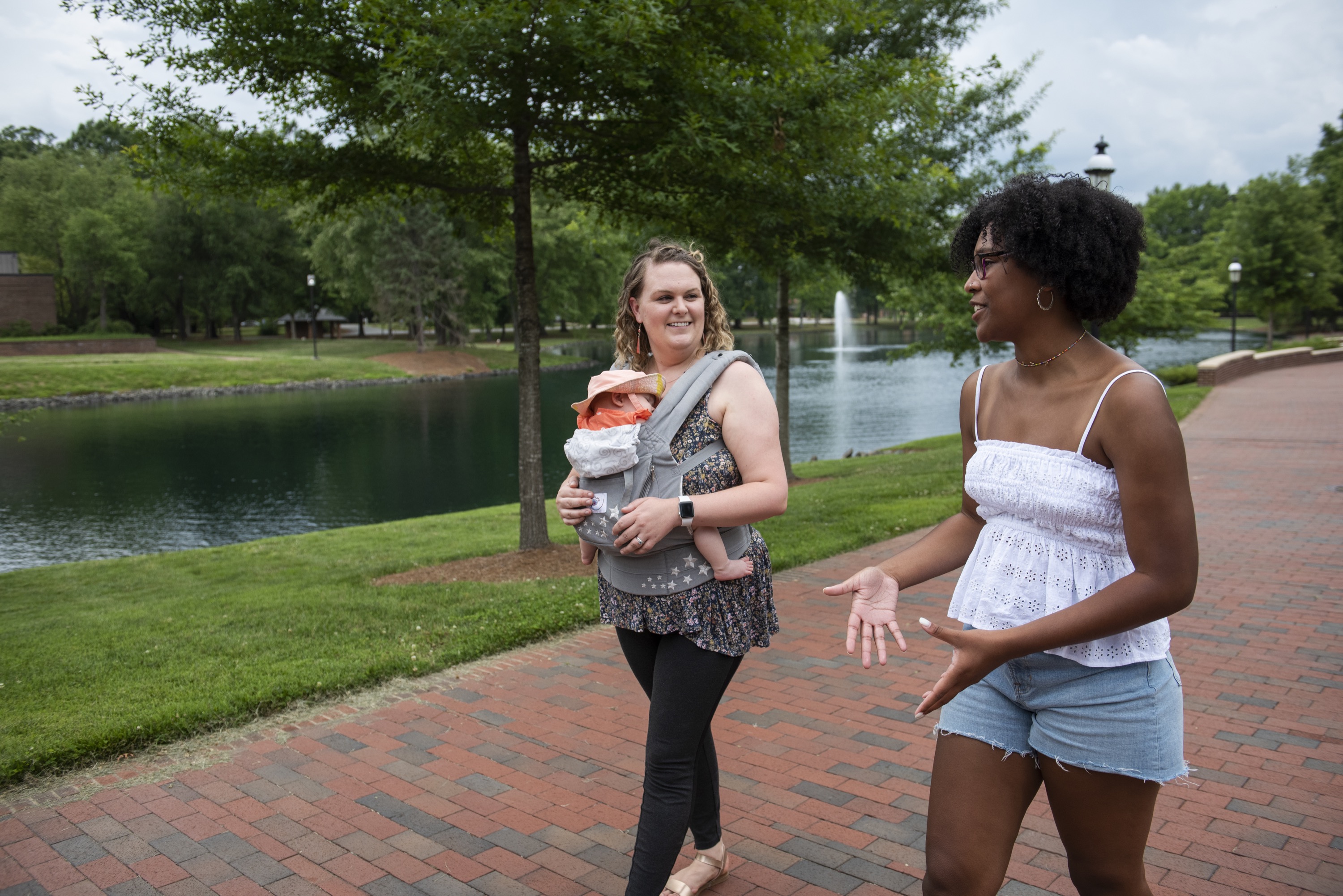Assistant Professor of English Jennifer Eidum is working on a book on how Elon has approached using residential learning communities as a tool to help students thrive.
With surveys of more than 3,000 students across four colleges and universities, Assistant Professor of English Jennifer Eidum and her research colleagues have gained insights into what factors contribute to whether students thrive in residential learning communities. The volumes of data they have collected point to how the presence of faculty within those learning communities leads to more engaging and impactful student experiences, among other findings.
“What we’ve found is that when faculty are involved in residential learning communities, students thrived more,” Eidum says. “When faculty were involved in ways beyond the classroom, such as faculty-in-residence, attending events or leading lectures for the community, the results just popped.”
It’s a conclusion Eidum can support with her own experience, having served as a faculty-in-residence in Elon’s Global Neighborhood for the past five academic years. This fall marks her final year living on campus, having navigated life and work through a pandemic, a pregnancy and now with a new infant, all while living in the neighborhood’s faculty apartment and engaging with students on a personal level.
Her research and experience are supporting a new book due out in 2022 with a colleague from her research team — “The Faculty Factor” — as part of the Center for Engaged Learning’s Stylus Book Series on Engaged Learning and Teaching. The book includes a chapter by President Connie Ledoux Book and Vice President for Strategic Initiatives and Partnerships Jeff Stein focused on how Elon has approached using residential learning communities as a tool to help students thrive.
Eidum and her team undertook the research as part of the center’s research seminar exploring residential learning communities as a high-impact educational practice. She began living in residence in the Global Neighborhood in 2016, having arrived at the university just a year prior but knowing she wanted to pursue that opportunity. The launch of the three-year research seminar in 2017 dovetailed with the experience she was gaining immersed with students in the residential neighborhood environment.
“Studying the theory while living it out in practice is so interesting,” Eidum says. “You try to pull out little tendrils of what you’re learning in the research and apply them for the event you’re planning that week in your neighborhood.”
As the COVID-19 pandemic impacted so many aspects of university life in 2020, including the cancellation of most in-person events, Eidum took the opportunity to advance her research while also looking at these high-impact practices from a different perspective. Toward the end of the past academic year, she finalized the details for a new “Get On My Lawn” event series, which launches this fall and focuses on outdoor activities for the community. She hopes these and other outdoor gatherings across campus make it less tempting for students to just retreat into their rooms.
“I was able to step back, work on the book and deeply reflect on what matters and how I will do things different during this next academic year,” Eidum says.
Assistant Professor of English & Faculty-in-Residence Jennifer Eidum walks by Lake Mary Nell with her child & Ellery Ewell ’23, who served as the lead student mentor in the Global Neighborhood during the 2020-21 academic year.
Learn more about “Theme 2: Thrive” of the Boldly Elon strategic plan.



